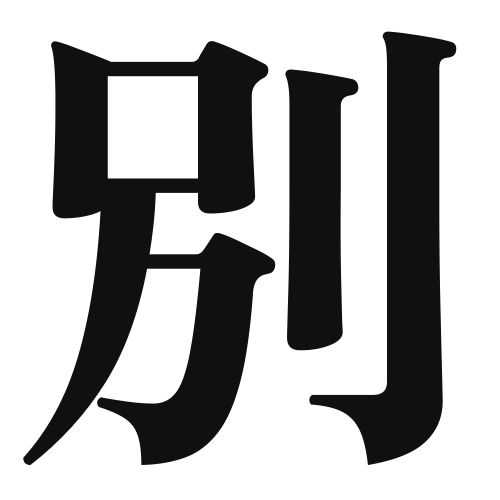1. Overview of Meaning
The kanji “別” (betsu) means “separate” or “different.” It is often used to indicate distinction or individuality in various contexts.
2. Formation and Radical
Formation of the Kanji: The kanji “別” is a compound character that combines the radical for “separation” with elements that convey the idea of distinction. It is not a pictogram or ideogram but rather a character that represents a concept.
Radical: The radical for “別” is “分” (bun), which relates to division or separation.
3. Examples of Usage
Common Words and Phrases: Some frequently used words that include “別” are:
- 別れる (wakaru) – to separate
- 別の (betsu no) – another or different
- 別居 (bekkyo) – living apart
Example Sentences in Daily Conversation:
- 私たちは別の道を選びました。 (Watashitachi wa betsu no michi o erabimashita.) – We chose a different path.
- 彼とは別れました。 (Kare to wa wakaremashita.) – I separated from him.
4. Synonyms and Antonyms
Similar Kanji: A similar kanji is “異” (i), which also means “different” but often implies a more unusual or strange difference.
Antonyms: The antonym of “別” is “同” (dou), which means “same” or “together.”
5. Cultural and Historical Background
Relation to Japanese Culture: The concept of separation and individuality is significant in Japanese culture, often reflected in social customs and practices.
Proverbs and Idioms: An example of a related proverb is “別れは新しい出発” (Wakare wa atarashii shuppatsu), which means “Separation is a new beginning.”
